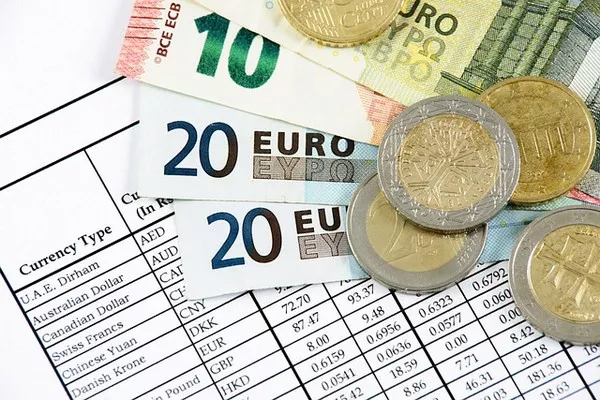The international currency landscape has long been dominated by the US dollar, but the euro, introduced in 1999, has steadily gained prominence. As the official currency of 20 of the 27 European Union member states, the euro serves over 340 million Europeans and represents one of the world’s largest economic blocs. This article explores whether the euro has ascended to the position of the most important international currency, examining its role in global finance, trade, and economic stability.
Historical Context and the Euro’s Rise
The creation of the euro was a significant milestone in the economic integration of Europe, aimed at fostering economic stability, facilitating trade, and enhancing political cooperation among EU member states. The Maastricht Treaty, signed in 1992, laid the groundwork for Economic and Monetary Union (EMU), culminating in the euro’s introduction.
Since its inception, the euro has become the second most widely held reserve currency, accounting for about 20% of global foreign exchange reserves. This is a notable achievement, given the dollar’s historical dominance, which still commands around 60% of reserves. The euro’s ascent is rooted in the economic strength of the Eurozone, which collectively represents one of the largest economies in the world, rivaling the United States and China.
Global Trade and the Euro
In terms of global trade, the euro plays a critical role. The Eurozone is one of the world’s largest trading entities, and many countries prefer to use the euro in their transactions with European nations to avoid exchange rate risk and transaction costs. The euro is also extensively used in international trade involving countries outside the Eurozone, particularly in regions with close economic ties to Europe, such as Africa and Eastern Europe.
Additionally, several countries and territories have pegged their currencies to the euro, such as the West African CFA franc and the Central African CFA franc, which are used by 14 countries in Africa. This peg highlights the euro’s influence and the stability it offers to these economies.
Financial Markets and the Euro
The euro is pivotal in international financial markets. It is a major currency for global bond issuance, with euro-denominated bonds being popular among international investors due to the liquidity and stability of Eurozone financial markets. The European Central Bank (ECB) plays a crucial role in maintaining this stability through its monetary policies, which are often seen as a counterbalance to the Federal Reserve’s actions in the United States.
Moreover, the euro is extensively used in the forex market, being one of the most traded currencies worldwide. According to the Bank for International Settlements, the euro is involved in approximately 31% of all forex transactions. This high level of activity underscores the currency’s importance in global finance.
Economic Stability and the Euro
The euro’s significance also lies in its role in promoting economic stability within the Eurozone. The single currency eliminates exchange rate fluctuations among member states, fostering a stable economic environment conducive to investment and economic growth. However, this stability has been tested by various crises, such as the sovereign debt crisis of the early 2010s, which exposed structural weaknesses within the Eurozone.
The ECB’s response to these crises, through measures such as quantitative easing and the establishment of the European Stability Mechanism (ESM), has been critical in restoring confidence. These efforts demonstrate the Eurozone’s commitment to preserving the euro’s stability and its resilience in the face of economic challenges.
Comparison with the US Dollar
Despite its achievements, the euro faces challenges in surpassing the US dollar’s dominance. The dollar benefits from the extensive use of English in international business, the depth of US financial markets, and the geopolitical influence of the United States. The dollar’s status as the primary reserve currency is bolstered by its use in global oil transactions and its perceived safe-haven status during times of economic uncertainty.
However, the euro presents a credible alternative to the dollar in several respects. The EU’s significant economic output, sophisticated financial markets, and the growing geopolitical influence of the EU contribute to the euro’s international standing. Moreover, the euro’s role in the IMF’s Special Drawing Rights (SDR) basket, where it holds a substantial weight, reflects its importance in the global monetary system.
Challenges and Future Prospects
The euro’s future as the most important international currency is contingent on several factors. Structural reforms within the Eurozone, aimed at addressing fiscal imbalances and enhancing economic convergence, are crucial. Greater political integration and the completion of the Banking Union and Capital Markets Union would strengthen the Eurozone’s financial architecture, making the euro more attractive as a global currency.
Furthermore, the digital euro initiative, proposed by the ECB, could enhance the currency’s appeal by providing a modern and efficient means of payment. A digital euro would not only facilitate domestic transactions but also reinforce the euro’s role in global digital finance, potentially increasing its use in international trade and finance.
Conclusion
While the euro has made significant strides since its introduction and plays a vital role in the global economy, it has not yet eclipsed the US dollar as the most important international currency. The dollar’s entrenched position, supported by the size and influence of the US economy and financial markets, continues to overshadow the euro’s achievements.
However, the euro’s growing share in global reserves, its extensive use in international trade, and its importance in financial markets indicate a robust and influential currency. The future of the euro as a leading international currency will depend on the Eurozone’s ability to implement structural reforms, enhance political integration, and adapt to the evolving global economic landscape.
In conclusion, while the euro may not currently hold the title of the most important international currency, it undoubtedly remains a formidable contender. Its role in global finance, trade, and economic stability ensures that it will continue to be a critical player in the international currency arena, potentially increasing its influence in the years to come.


